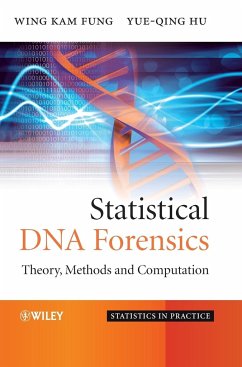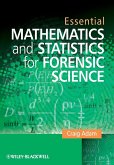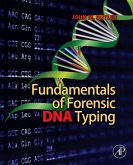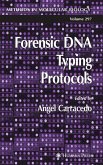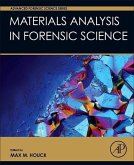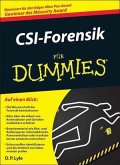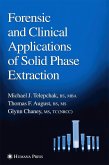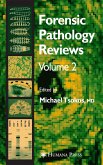Statistical methodology plays a key role in ensuring that DNA evidence is collected, interpreted, analyzed, and presented correctly. With the recent advances in computer technology, this methodology is more complex than ever before. There are a growing number of books in the area but none are devoted to the computational analysis of evidence.
Since the introduction of DNA evidence to the criminal justice system in the late 1980s, statistical methodologies have governed the collection, analysis and interpretation of forensic data. The employment of advanced computer technologies has enabled DNA evidence to be employed in increasingly complex procedures, and this, in turn, has facilitated the use of more intricate and specialized statistical techniques.
Statistical DNA Forensics sets out to provide a practical guide to the analysis of DNA evidence. The authors present an overview of the essential statistical methodology and computational techniques used in analyzing DNA evidence. Basic genetics and elementary statistics are introduced, enabling readers from either discipline to understand complex forensic cases and make use of the advanced topics presented.
The book:
_ Presents a systematic, case study-based, analysis of key forensic DNA application areas.
_ Focuses on fundamentalareas of DNA profiling; paternity and kinship testing, single source forensic DNA, and mixed DNA stains.
_ Provides a comprehensive summary of the associated formulae in table form.
_ Discusses the database search method in forensic DNA, and the presentation and interpretation of the evidence.
_ Is supported by a supplementary website, containing illustrated examples and solutions, as well as specially developed software enabling readers to analyze real case studies.
Statistical DNA Forensics: Theory, Methods and Computation takes a software-based approach to the subject, and makes essential reading for students, researchers and practitioners in forensic science, genetics and applied statistics.
Hinweis: Dieser Artikel kann nur an eine deutsche Lieferadresse ausgeliefert werden.
Since the introduction of DNA evidence to the criminal justice system in the late 1980s, statistical methodologies have governed the collection, analysis and interpretation of forensic data. The employment of advanced computer technologies has enabled DNA evidence to be employed in increasingly complex procedures, and this, in turn, has facilitated the use of more intricate and specialized statistical techniques.
Statistical DNA Forensics sets out to provide a practical guide to the analysis of DNA evidence. The authors present an overview of the essential statistical methodology and computational techniques used in analyzing DNA evidence. Basic genetics and elementary statistics are introduced, enabling readers from either discipline to understand complex forensic cases and make use of the advanced topics presented.
The book:
_ Presents a systematic, case study-based, analysis of key forensic DNA application areas.
_ Focuses on fundamentalareas of DNA profiling; paternity and kinship testing, single source forensic DNA, and mixed DNA stains.
_ Provides a comprehensive summary of the associated formulae in table form.
_ Discusses the database search method in forensic DNA, and the presentation and interpretation of the evidence.
_ Is supported by a supplementary website, containing illustrated examples and solutions, as well as specially developed software enabling readers to analyze real case studies.
Statistical DNA Forensics: Theory, Methods and Computation takes a software-based approach to the subject, and makes essential reading for students, researchers and practitioners in forensic science, genetics and applied statistics.
Hinweis: Dieser Artikel kann nur an eine deutsche Lieferadresse ausgeliefert werden.

